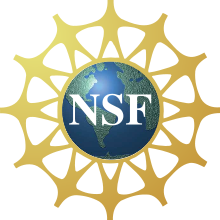
Engineers, Life Scientist Team Up to Create “Precision Agriculture”
November 7, 2018
An interdisciplinary team of NYIT faculty is poised to leverage technology to transform how soil analysis is conducted, thanks to a grant of nearly $300,000 from the U.S. National Science Foundation (NSF). By developing an in-ground, real-time soil nutrient sensing system, the researchers aim to improve agricultural efficiency and enhance sustainability of the food/energy/water (FEW) nexus—ultimately enhancing crop growth and reducing contamination from agricultural runoff. The NSF considers the project “potentially transformative,” because the current system of soil analysis—sending soil samples to a lab—is extremely costly and time consuming.
“Population growth, aggressive farming practices, and climate change have put significant stress on the food production system for sustainable growth,” said Principal Investigator (PI) Ziqian (Cecilia) Dong, Ph.D., associate professor of electrical and computer engineering in NYIT College of Engineering and Computing Sciences. “Furthermore, agricultural runoff from over-fertilization and waste from large farms into natural water sources disturb the ecosystem. This sensor system will enable precision agriculture, with lower costs to the farmer and to the environment.” Dong’s team of NYIT co-PIs are Fang Li, Ph.D., associate professor of mechanical engineering; Shenglong Zhang, Ph.D., assistant professor of life sciences in NYIT College of Arts and Sciences; and Reza Amineh, Ph.D., assistant professor of electrical and computer engineering.
Currently, 71 percent of freshwater resources worldwide is polluted by agricultural runoff. In addition, 30 percent of all energy used globally is spent on agriculture. The visibly contaminated flood waters in North Carolina resulting partly from dozens of “hog lagoons” that overflowed after Hurricane Florence is only one example of the constant threats agriculture poses to the sustainability of the FEW nexus. Increasing the efficiency of food production can directly diminish pollution and greenhouse gas emissions.
The grant will help the researchers design a way for in-ground sensors to communicate wirelessly and in real time about the moisture, temperature, pH balance, nutrients, and contaminants of the soil where the sensors are placed. In addition to designing and fabricating the sensors, researchers will need to create an antenna to communicate with a distant drone to report, in real time, the soil’s condition.
In addition to improving the environment for food, energy, and water use, faculty members working on this project will train a group of graduate research assistants to work across disciplines to find solutions that increase sustainability and community resilience. Each researcher will work with students on a specific aspect of the project, whether identifying specific polymers for nutrient sensing; designing, fabricating, and testing various pieces of hardware (sensors, a specialized antenna); selecting a ground penetrating radar unit; or creating a drone-enabled sensor network for data communication.
Provost and Vice President for Academic Affairs Junius J. Gonzales, M.D., said of the new grant, “Cutting-edge interdisciplinary research that has the potential to create a more sustainable agricultural system highlights NYIT’s commitment to addressing the world’s most pressing problems. Students who are selected to work on this project are in for a transformative educational experience.” Gonzales added that while interdisciplinary research is hard, “it holds huge potential.”
The College of Engineering and Computing Sciences has a long track record of tackling FEW challenges, an area of research spearheaded by Nada Anid, Ph.D., former dean and now vice president of Strategic Communications and External Affairs. The college’s efforts include participating with Peking University in a U.S. State Department-sanctioned “eco-partnership”; hosting conferences and workshops; and organizing a network to tackle unresolved urban FEW challenges in the United States and Europe. Projects in FEW studies at NYIT have received several NSF grants and involve work by faculty members in departments of Life Sciences, Electrical and Computer Engineering, Energy Management, Environmental Technology and Sustainability, Mechanical Engineering, and Urban and Regional Design.
More Features

An Alumnus’ Commitment to the Environment
As an energy management graduate from New York Tech’s Vancouver campus, Jasdeep Gulati (M.S. ’22) is highly invested in educating people about environmental and climate sustainability.

Vancouver Faculty Win University-Sponsored Research Awards in New Program
The new Global Impact Research Grant (GIRG) program has been developed to keep Vancouver-based faculty connected to faculty and research projects being conducted on the university’s New York campuses.

Studying Climate Change One Degree at a Time
Junhua Qu (M.S. ’24) began her collegiate journey in Beijing. But, her interest in climate change took her to New York Tech’s Vancouver campus to study energy management.

